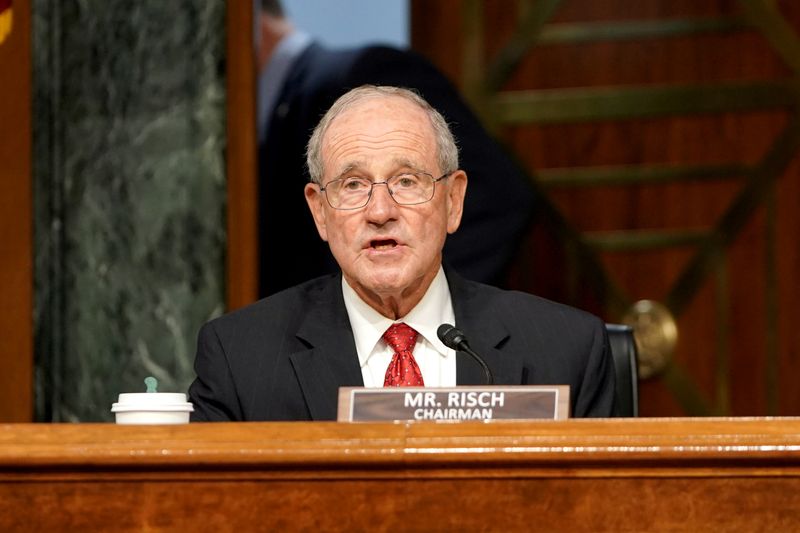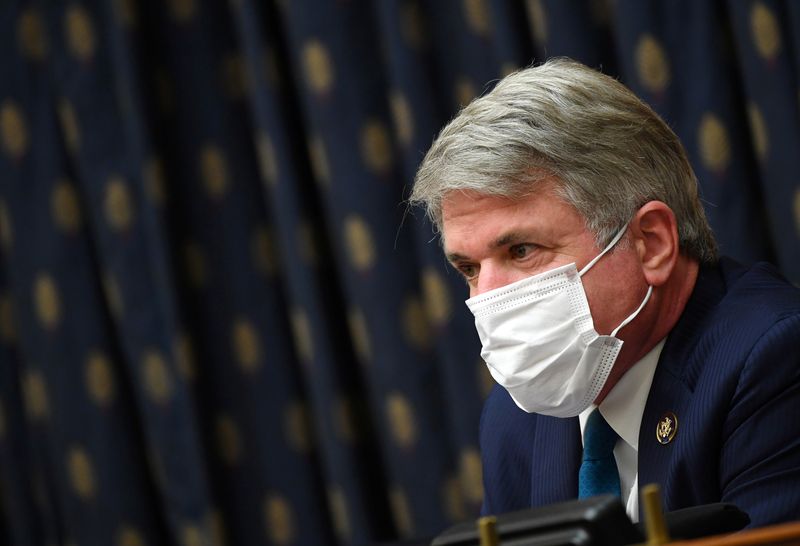WASHINGTON (Reuters) – The Biden administration faced pressure from Republican lawmakers on its second day in office for a more forceful response to Beijing’s announcement of sanctions against the architects of former President Donald Trump’s tough China policy.
As Democrat Joe Biden was sworn in as president on Wednesday, China announced sanctions against outgoing Secretary of State Mike Pompeo and 27 other Trump officials in a striking repudiation of its relationship with the previous U.S. administration.
The Biden administration, which is seeking Republican support for a policy to “out-compete” China, responded by calling the move “unproductive and cynical” and urged Americans from both parties to condemn it. China, by making the announcement on Inauguration Day, appeared to be attempting to play into U.S. divisions, it said.
Jim Risch, the senior Republican on the Senate Foreign Relations committee, said on Twitter that Beijing was “already testing the Biden Admin’s resolve to continue a tougher, competitive approach towards #China.”
“Together, Republicans & Democrats must show Beijing we will not be deterred from defending U.S. interests.”
Michael McCaul, the leading Republican on the House of Representatives Foreign Affairs Committee, said the sanctions were “a brazen and baseless attempt to silence and intimidate” officials who had exposed abuses.
“The Biden administration and any country that values democratic principles must respond immediately and forcefully to demonstrate that coercion will not be tolerated,” he said.
Beijing announced its sanctions after Pompeo, who unleashed a barrage of measures against China in his final weeks in office, declared on Tuesday that China had committed “genocide and crimes against humanity” against Uighur Muslims.
Just before it did so, Beijing also said it wanted to cooperate with the Biden administration, even after Biden’s choice to succeed Pompeo, Antony Blinken, said he agreed with his assessment.
A Republican House Foreign Affairs Committee staffer said responses could include counter-sanctions or tightening of existing measures, adding: “This latest move was a serious escalation.”
The Biden administration, which is still setting up its full Asia policy and other government teams, did not immediately reply when asked if it planned a response.
Beijing’s sanctions ban the 28 officials and immediate family members from entering China and they and any companies or organizations associated with them from having dealings there.
China has repeatedly rejected accusations of abuse in Xinjiang, where a United Nations panel has said at least one million Uighurs and other Muslims have been detained in camps.
Blinken told his Senate confirmation hearing China posed the most significant challenge to the United States of any nation, and that he believed there was a very strong foundation to build a bipartisan policy to stand up to Beijing.
Some Republicans and others are concerned Biden may soften Trump’s hardline approach to secure cooperation on other goals, including combating climate change and North Korea.
Some in the U.S. business community saw China’s move as a shot across the bow, not only at Biden, but potentially at companies, banks, consulting firms, think tanks, and universities that have dealings with former U.S. officials.
“This team doesn’t have the luxury of six months to study the issue,” one private-sector China policy analyst said of the Biden administration. “It requires a near term response that goes beyond signaling.”
The source spoke on condition of anonymity out of fear of backlash from China.
(Reporting by David Brunnstrom and Michael Martina; editing by Grant McCool)






















